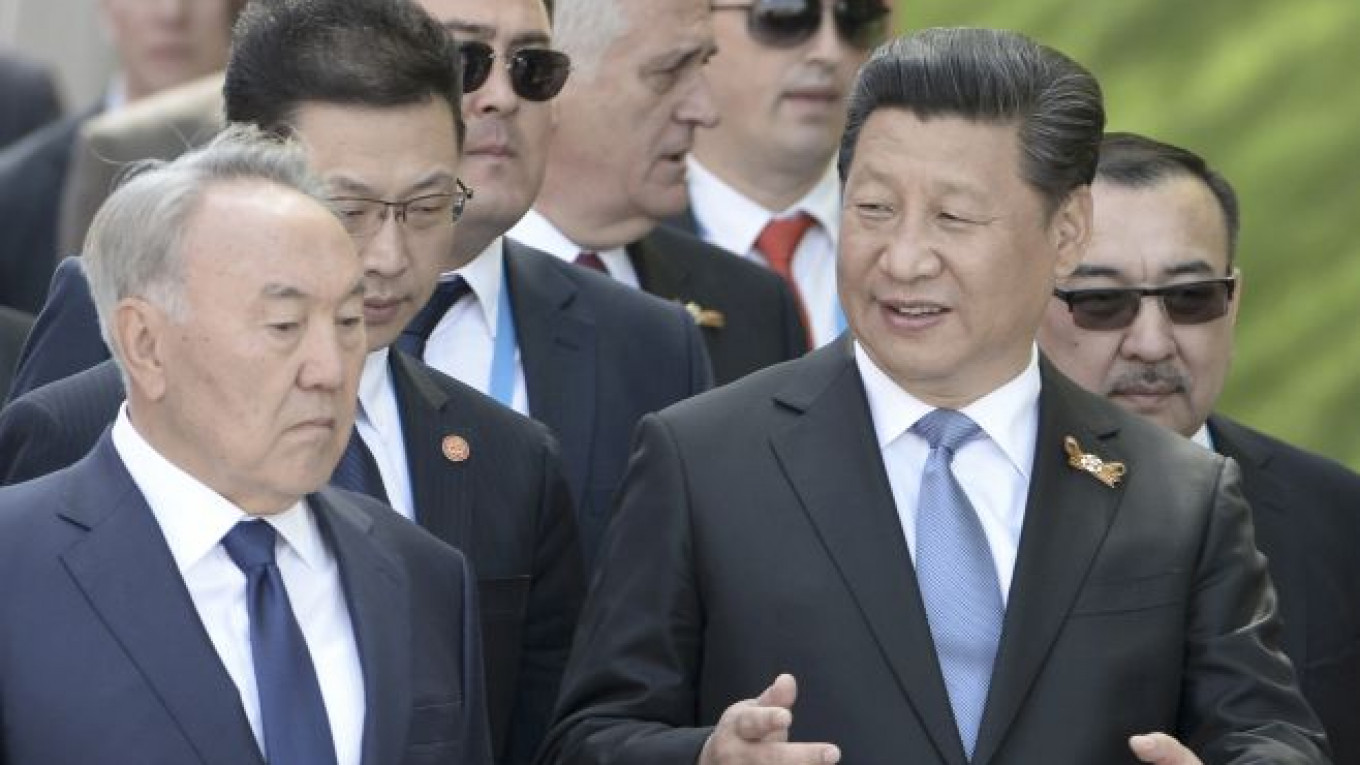Entering into a budding debate over the future face of the Eurasian landmass, Kazakh President Nursultan Nazarbayev on Friday proposed creating a transport corridor that would run from Asia to Europe across Kazakhstan.
"I propose creating a new, high-speed combined transport route — the Eurasian transcontinental corridor," Nazarbayev said at an economic forum in Astana, the capital of Kazakhstan, Kazakh news agency Tengri News reported.
"It will extend across the entire territory of our country, enabling unhindered transit of cargo from Asia to Europe and back. It's a much shorter way than across the ocean," Nazarbayev said.
The Kazakh president's proposal appears to fall in line with China's scheme to create a Silk Road Economic Belt from China to Europe via Central Asia, for which China has been steadily lobbying Kazakhstan.
Russia, meanwhile, has its own candidates for an Asia-Europe transport link: the Trans-Siberian Railroad and its tributary, the Baikal-Amur Mainline (BAM), which the government has pledged to modernize.
President Vladimir Putin said in 2013 that the railways stood to become "the main transportation artery between Europe and the Asia-Pacific region," giving "a powerful boost to development for Siberia and the Far East."
Chinese President Xi Jinping made a daylong stopover in Kazakhstan on his way to Russia earlier this month. During his visit, he declared that China is ready to align its Silk Belt initiative with Kazakhstan's Nyrly Zhol economic policy, a plan that aims to raise Kazakhstan into the world's top 30 most developed countries, the official Chinese news agency Xinhua News reported.
Economic ties between the two nations are also growing, with China and Kazakhstan in March signing 33 deals worth a total of nearly $24 billion, according to The Astana Times, a Kazakhstan-based newspaper.
Even as China takes an increasing interest in Central Asia, Russia is seeking to consolidate its influence in the region through the fledgling Eurasian Economic Union, an economic association that now lists Russia, Kazakhstan, Belarus and Armenia among its members.
Contact the author at d.damora@imedia.ru
A Message from The Moscow Times:
Dear readers,
We are facing unprecedented challenges. Russia's Prosecutor General's Office has designated The Moscow Times as an "undesirable" organization, criminalizing our work and putting our staff at risk of prosecution. This follows our earlier unjust labeling as a "foreign agent."
These actions are direct attempts to silence independent journalism in Russia. The authorities claim our work "discredits the decisions of the Russian leadership." We see things differently: we strive to provide accurate, unbiased reporting on Russia.
We, the journalists of The Moscow Times, refuse to be silenced. But to continue our work, we need your help.
Your support, no matter how small, makes a world of difference. If you can, please support us monthly starting from just $2. It's quick to set up, and every contribution makes a significant impact.
By supporting The Moscow Times, you're defending open, independent journalism in the face of repression. Thank you for standing with us.
Remind me later.


